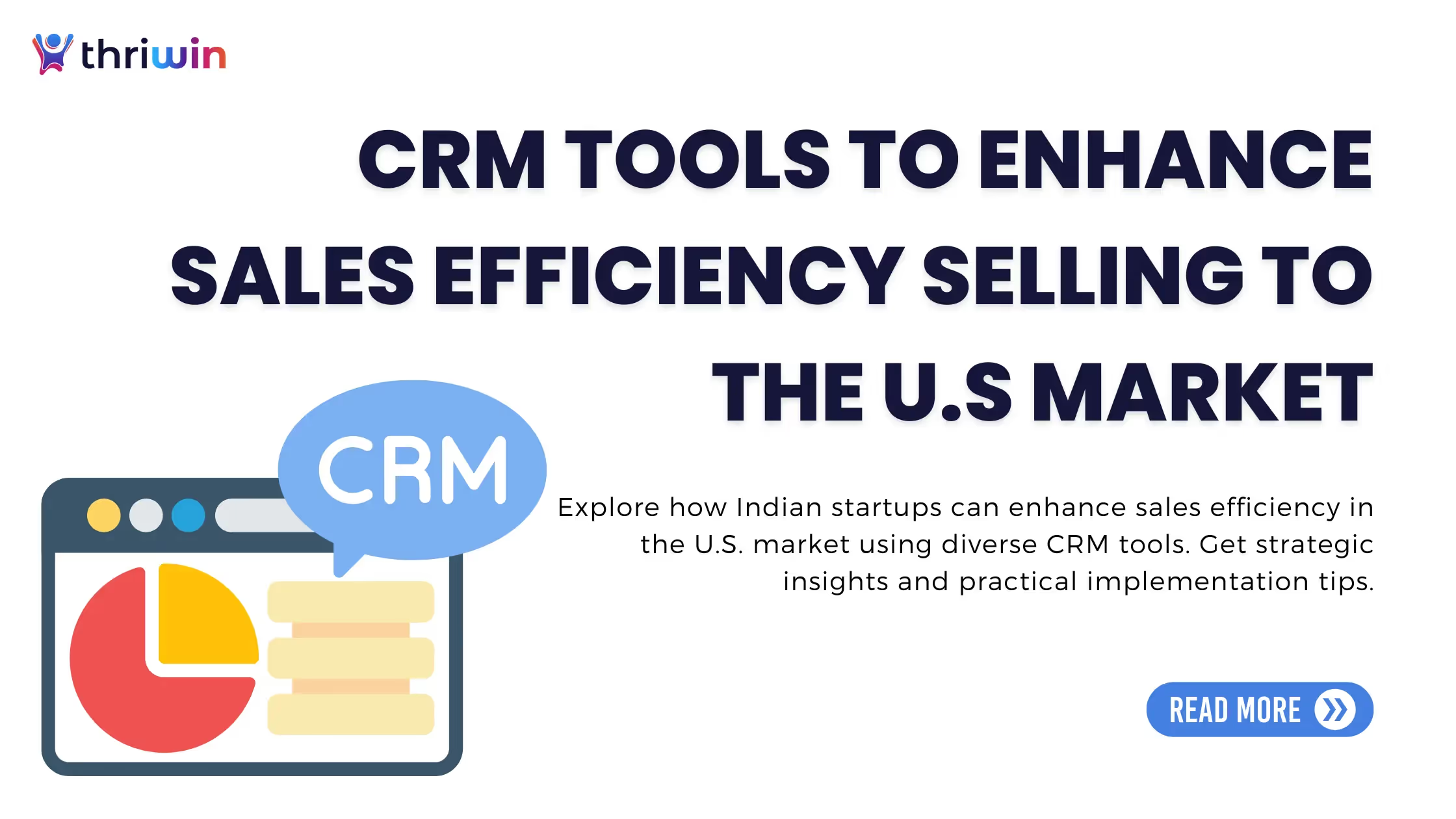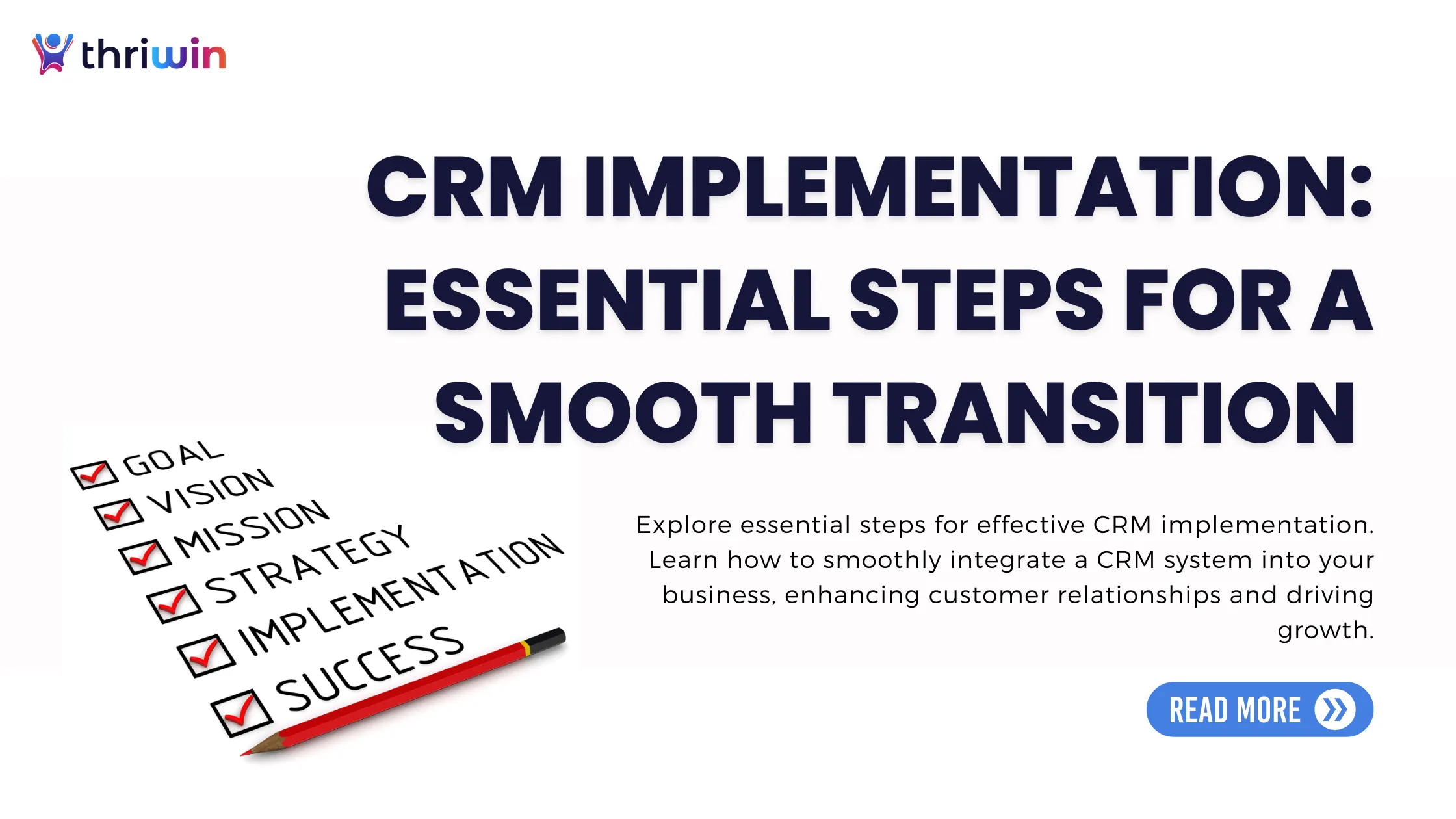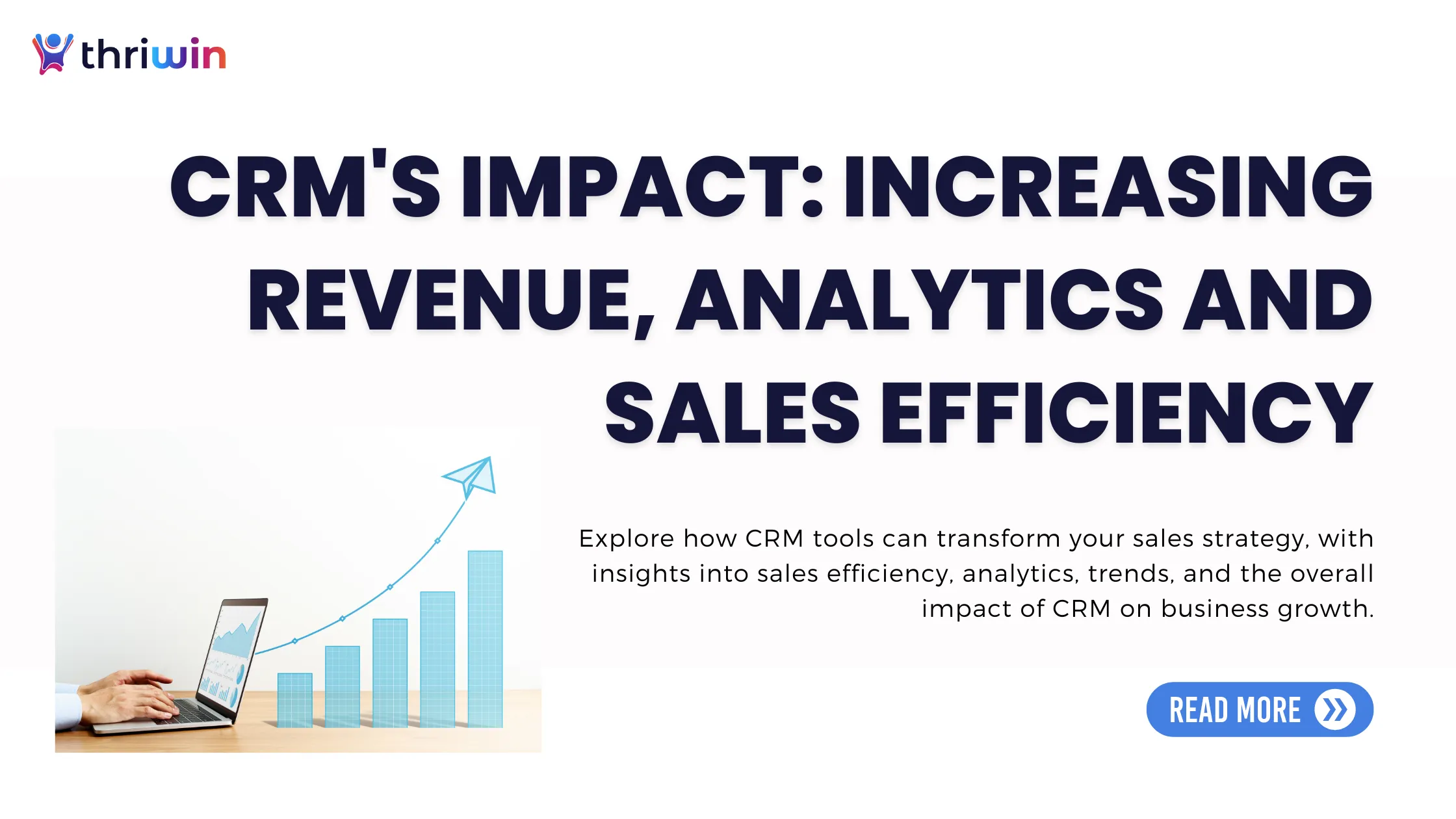For Indian startups, the U.S. market presents unique challenges and opportunities. The vast geographical spread, diverse consumer base, and highly regulated environment demand meticulous customer relationship management. CRM tools help organize customer information and enable personalized marketing, streamlined sales processes, and improved customer service—critical factors in enhancing market penetration and retention rates.
This article explores how CRM tools can elevate sales efficiency, providing practical insights and strategies.
Why Do Startups Need CRM Tools?
Startups, particularly those eyeing expansion into the competitive U.S. market, face the daunting task of managing intricate customer interactions that span various states and time zones. A robust customer relationship management (CRM) tool is essential for these companies for several reasons:
Centralized Data Management:
CRM systems offer a unified platform where all customer interactions, sales data, and communication histories are stored. This centralization is crucial for startups that deal with a high volume of data from diverse sources. By having all the information in one place, startups can quickly access, analyze, and make decisions based on up-to-date information, eliminating data silos that often hinder the decision-making process. Enhanced operational effectiveness through customized CRM solutions can further streamline your operations.
Enhanced Customer Understanding and Personalization:
The U.S. market is diverse, with customers' preferences, behaviors, and needs. CRM tools help startups understand these differences through detailed analytics and customer tracking. This insight allows for the customization of marketing and sales strategies to meet the specific needs of different customer segments, thereby increasing their effectiveness.
Efficient Resource Allocation:
Startups often operate with limited resources, including manpower and budget. CRM systems automate many routine tasks such as data entry, lead tracking, and customer communications, which frees up employees' time to focus on more strategic tasks. This efficient allocation of resources is critical for maintaining agility and responsiveness in a fast-paced market.
Improved Customer Engagement and Retention:
The CRM system enables startups to engage with customers more effectively through automated messaging, personalized email campaigns, and targeted promotions. These tools ensure that customers receive timely and relevant communication, which helps in building strong relationships and improving customer retention—a vital element in a vast and competitive market like the U.S. This approach not only fosters loyalty but also transforms how businesses interact with their customers.
Scalability and Flexibility:
As startups grow, their customer base and data volume expand significantly. CRM systems designed with scalability in mind can grow with the company, accommodating more customers and complex data sets without losing performance. This scalability ensures that startups can continue to manage their customer relationships effectively as they expand, maintaining operational continuity and customer engagement without the need for disruptive system changes.
CRM Strategies for U.S. Market Entry and Expansion
For Indian startups targeting the U.S. market, adopting strategic CRM practices is crucial for navigating the complexities of a diverse and competitive landscape. A well-implemented CRM system enables these businesses to capture and analyze vast amounts of customer data, facilitating informed decision-making and personalized customer interactions. These strategies not only help in understanding and penetrating the market effectively but also play a vital role in sustaining long-term growth and customer loyalty.
Here's how startups can leverage CRM to optimize their market entry and expansion efforts:
Data-Driven Customer Insights
Utilizing a CRM to gather and analyze customer data is pivotal for Indian startups entering the U.S. market. This data, which includes demographic details, purchasing patterns, and customer feedback, is invaluable for tailoring products and marketing strategies to meet local demands. By understanding the specifics of customer behavior and preferences, startups can make informed decisions about product adjustments, pricing strategies, and promotional activities.
Segmentation and Targeting
Effective segmentation and targeting are crucial for maximizing the impact of marketing efforts and resource utilization. CRMs allow startups to categorize their customer base into distinct groups based on various criteria such as geographical location, purchasing power, buying habits, and personal preferences.
Customer Service Excellence
In the U.S. market, where customer expectations are particularly high, delivering exceptional customer service is a significant competitive differentiator. CRM tools play a crucial role in achieving this by enhancing the efficiency and personalization of service interactions.
Step-by-Step Guide to CRM Integration for Startups Entering the U.S. Market
Implementing a CRM system effectively is a critical step for startups looking to enhance their operations and improve their engagement with the U.S. market. This step-by-step guide outlines the essential processes and considerations to ensure a smooth and effective CRM implementation, facilitating better customer interactions and operational efficiencies.
Step 1: Define Your Objectives
The initial step in CRM implementation is to explicitly define your startup's goals within the U.S. market. Objectives may include increasing sales in specific states, improving customer retention among U.S. consumers, and boosting marketing ROI with U.S.-centric campaigns. Setting clear goals helps tailor the CRM system to address the unique challenges and opportunities of doing business in the U.S., such as navigating diverse market segments and regulatory environments.
Step 2: Choose Your CRM
Selecting the right CRM is pivotal and must be informed by criteria crucial for U.S. market entry, such as scalability to handle expanding customer bases across states and compliance with U.S. data protection laws like GDPR and CCPA. Evaluate CRM platforms for features that support extensive analytics capabilities, ease of integration with other tools prevalent in the U.S. (e.g., Slack, Salesforce), and customization options that align with your business's size and specific goals in the U.S. market.
Step 3: Migrate Your Data
Data migration is a critical step that involves transferring existing customer data into the new CRM system, ensuring data integrity and compliance with U.S. data protection standards. Begin by purifying your existing data to eliminate inaccuracies and duplicates. Develop a comprehensive migration plan that details the data transfer process, assigns responsibilities, and outlines measures to maintain data accuracy, keeping U.S. regulations in mind.
Step 4: Train Your Team
Effective CRM implementation requires that your team is proficient in using the new system with a focus on engaging the U.S. market. Conduct detailed training sessions that cover using the CRM for daily operations, extracting and interpreting data relevant to U.S. consumers, and handling common issues that may arise when dealing with U.S. customers. Tailor the training to ensure all team members can utilize the CRM’s features effectively, focusing on skills that enhance customer interactions and compliance with U.S. market standards.
Step 5: Monitor and Optimize
Once the CRM system is operational, continuously monitor its performance to ensure it meets your U.S.-focused objectives. Employ analytics tools to track usage patterns, customer satisfaction, and system efficiency within the U.S. context. Regularly seek feedback from users and customers to pinpoint areas for improvement, such as refining data input practices, customizing user interfaces to suit U.S. customer preferences, or expanding training to cover new market challenges. This ongoing optimization is essential for keeping your CRM relevant and effective as your business grows and evolves within the U.S. market.
Conclusion
CRM tools are indispensable for Indian startups looking to establish and expand their presence in the U.S. market. By carefully selecting and implementing the right CRM strategies, businesses can enhance their sales efficiency, understand their customer base better, and deliver exceptional service, thereby securing a competitive edge in one of the world's most lucrative markets. With diligent application and continuous optimization, CRM systems can transform the sales landscape for Indian startups in the U.S. One such flexible tool is Thriwin, a sales CRM tailored for B2B companies, designed to boost sales efficiency without breaking the bank. With Thriwin, Indian startups can access powerful tools like lead management, conversation intelligence, deal tracking, and AI-driven call analysis—all for free or at a pay-per-use rate. This adaptability ensures that growing businesses can meet their dynamic needs and pave the way for long-term success.
%201.svg)






